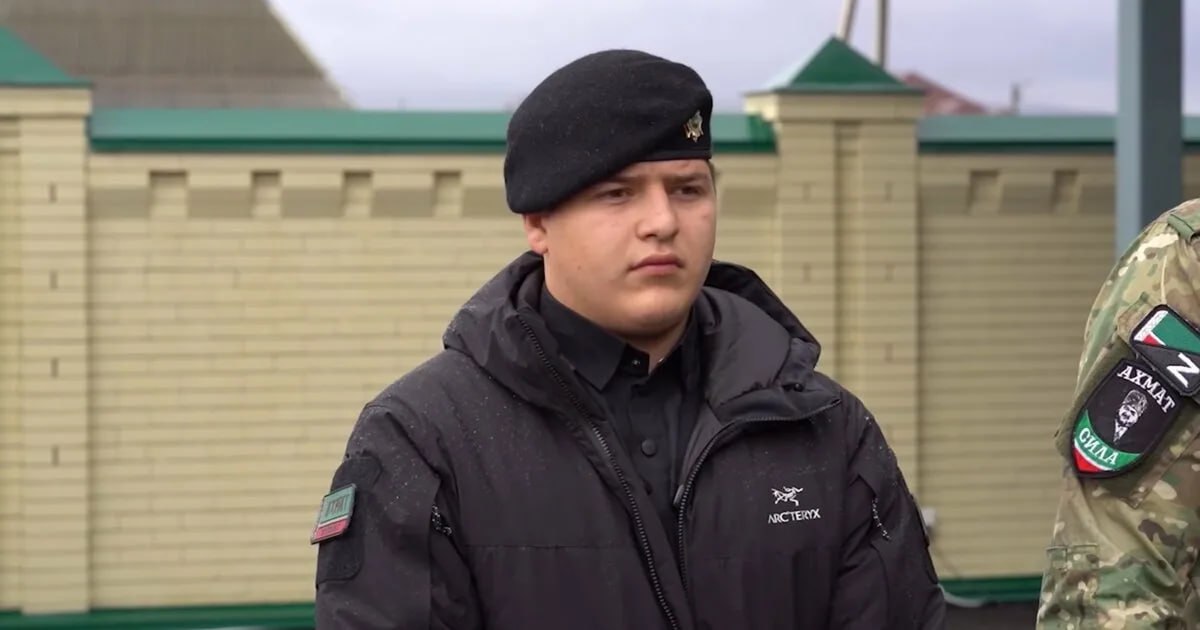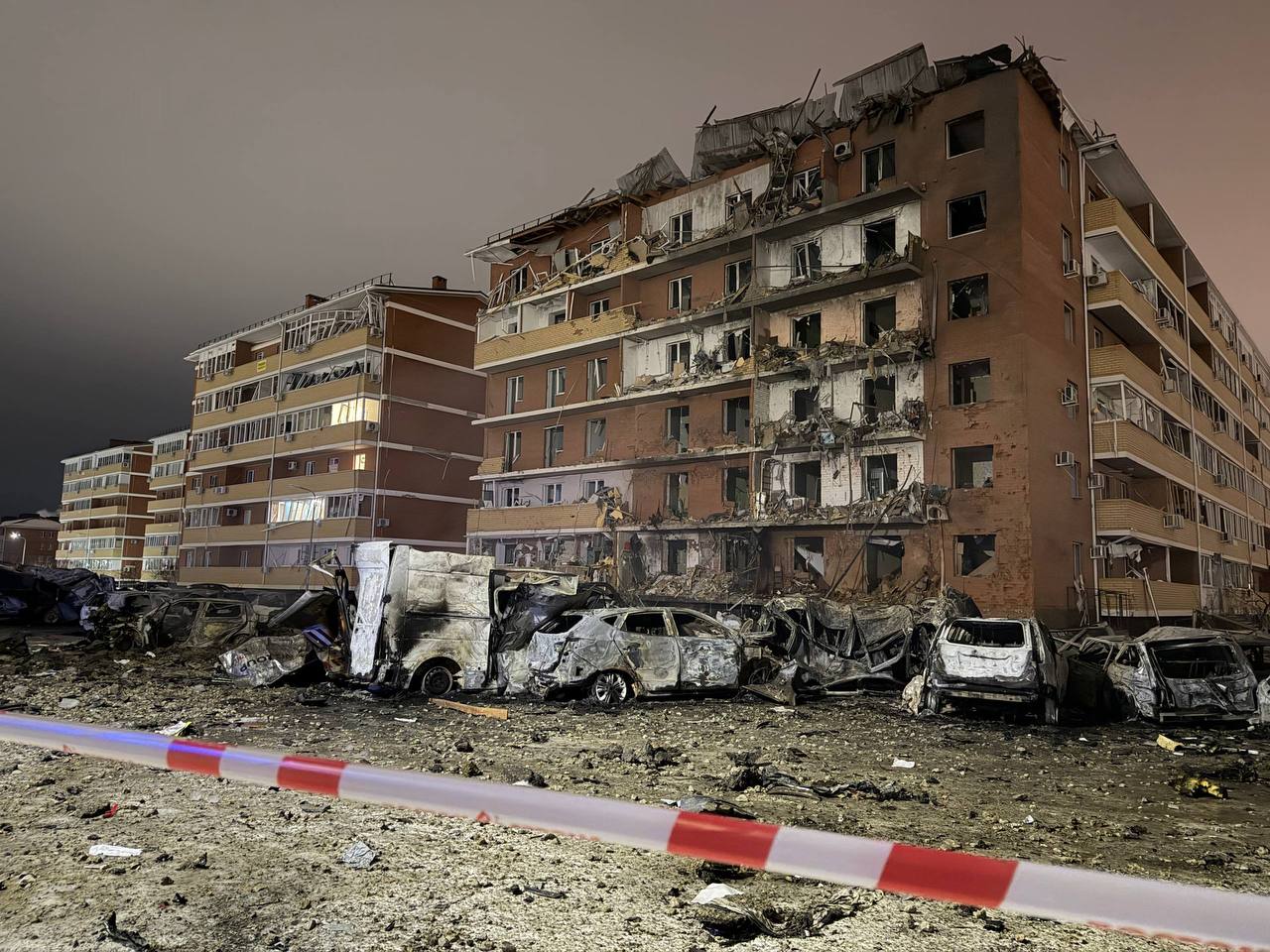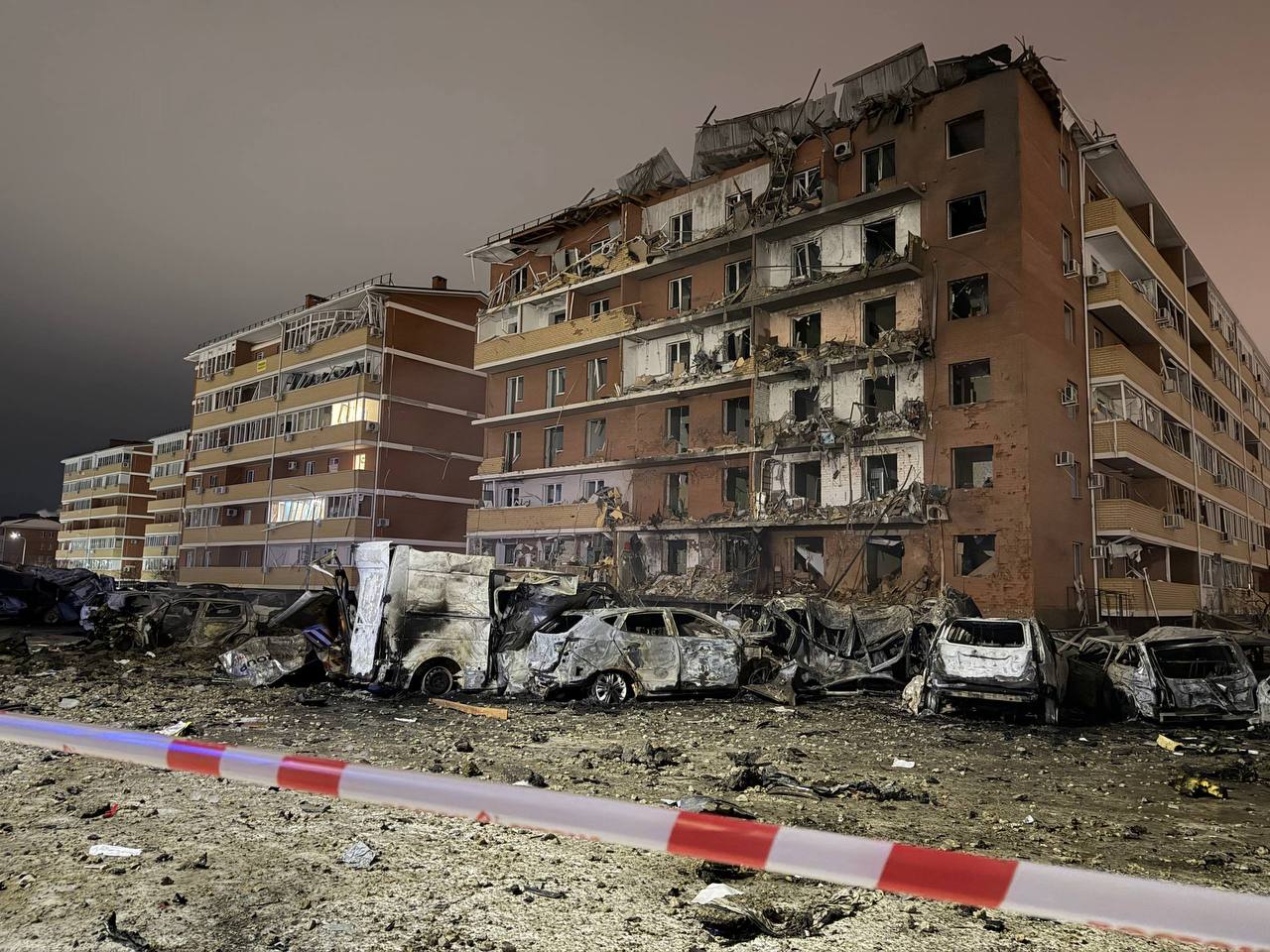The health of Adam Kadyrov, the son of Chechen leader Adam Kadyrov, who was injured in a traffic accident in Grozny, is improving, according to the Agency, citing sources close to the Russian presidential administration and the Chechen authorities.

December 3, 2001
***
Between 18.15 and 18.30 local residents Maidan Khasanovich Abdurakhmanov, born in 1973, and Uvais Magomedovich Barzukaev, born in 1970, were taken away by unknown soldiers to the city of Argun and disappeared without a trace.
Maidan Abdurakhmanov, who lived at the address: Polevaya St., 28, was visited by his neighbor Uvais Barzukaev, Voroshilov St., 58. The young men decided to take a walk around the city, and at the same time visit a friend. Not far from the fortified and guarded house of the mayor of the city, Movsar Temirbaev, on Voroshilov Street, they were put into a stopped Ural car (according to other sources, an armored personnel carrier) and taken away in an unknown direction. There are no direct witnesses to the abduction. Literally before the abduction, Maidan Abdurakhmanov and Uvais Barzukaev greeted their neighbor, who then went into his house. Hearing the noise, he looked outside. Neither the young people nor the equipment were there anymore.
Concerned about the long absence of her son, Zaman Abdurakhmanova began to look for him. First, she walked around the street where she assumed he might be, loudly calling his name. Then she went to Uvais Barzukaev, but his mother, Zulay, reported that he also did not come home.
Relatives of the abducted people contacted the police department, the military commandant of Argun, the civil administration of the city and the Bureau of Vladimir Kalamanov. The prosecutor's office opened criminal case No. 78049 (Article 126, Part 2, paragraphs “a, d, g”) of the Criminal Code of the Russian Federation. Maidan Abdurakhmanov and Uvays Barzukaev passed through it as abducted persons. On June 30, 2004, due to the alleged “impossibility of identifying persons involved in the crime” (clause 1, part 1, article 208 of the Code of Criminal Procedure of the Russian Federation), it was suspended. The relatives did not go to court regarding the inaction of the prosecutor's office. They did not file a complaint with the European Court of Human Rights in Strasbourg.
Maidan Abdurakhmanov was tall (180-185 cm), weight - 80-85 kg. He had black hair. For some time he worked in private security, but shortly before the abduction, members of the VF of the ChRI burned the car with his colleagues. There were dead. His mother asked him to leave work, and he was constantly at home.
Uvays Barzukaev’s height was 180 cm, his eyes and hair were dark. His distinctive features, according to his relatives, were burn marks on both legs and a cut scar on his right hand.
***
Not far from the village of Belgatoy, in the pope, about two kilometers from the Baku-Rostov highway, the bodies of three men and an exploded Niva car were found. Killed were residents of the village of Novye Atagi, Member of the Parliament of the ChRI Rizvan Dokuevich Lorsanov, born in 1950, and residents of the neighboring village of Chiri-Yurt Ibragim Saypuddinovich Kazbekov, born in 1958, former assistant to the first vice-premier of the government of the ChRI, and Ayub Arsanbekovich Arsanukaev, born 1931
Information about this was transmitted through Russian television channels. As it was established, on Friday, November 30, Ibragim Kazbekov and Ayub Arsanukaev came to Rizvan Lorsanov from a neighboring village with a request to help find out the fate of Arsanukaev’s son, who was detained by the military during the “cleansing” of Chiri-Yurt and taken to an unknown direction.
It was decided to start the search in the city of Shali and continue, if there were no results, in Khankala, the main military base of the federal forces. At about 10 o'clock the men left in Lorsanov's Niva car, saying that they would return home in the evening.
There were witnesses who saw that a passenger car, accompanied by an infantry fighting vehicle, left Shali and headed towards the village of Mesker-Yurt. One of the military men was sitting next to the driver of the Niva. On one section of the road, the BMP and Niva stopped, the military and civilians got out of them and began to argue about something, interrupting each other and desperately gesturing with their hands. Some drivers drove by and tried to stop and intervene, but Lorsanov showed with signs that everything was fine and there was no need to linger.
A few minutes later, those arguing got into the vehicle and, turning off the road, drove across an open field towards the village of Belgatoy. (According to other information, the military put bags over the heads of three people, put them in an infantry fighting vehicle and took them to a field, away from the road, and a passenger car with a serviceman at the wheel followed). At approximately noon on November 30, an explosion was heard on the eastern outskirts of Belgatoy. Immediately after this, local residents noticed an infantry fighting vehicle driving away.
The bodies of the dead were discovered only on the third day. Relatives of the victims arrived at the scene of the murder and saw a terrible picture: the crumpled frame of the Niva and what was left of their relatives. Rizvan Lorsanov, Ibragim Kazbekov and Ayub Arsanukaev were shot and then blown up in a car. The bodies of Kazbekov and Arsanukaev were blown to pieces, Lorsanov’s stomach was torn apart.
Shell casings and clear traces of military equipment were found at the crime scene.
The news of the tragic death of Rizvan Lorsanov was greeted in the Shali region and in the republic with sincere regret: he was known and respected by many. He was known for organizing the first (in 1995) meeting between the command of the federal forces and the military leadership of Ichkeria during the first Chechen campaign. In addition, in Lorsanov’s house in 1996, negotiations took place between the Secretary of the Russian Security Council, Alexander Lebed, and the Chief of the General Staff of the Armed Forces of the ChRI, Aslan Maskhadov, which marked the beginning of a peaceful resolution of the conflict in the Chechen Republic.
Since 1997, Rizvan Lorsanov has been a member of the ChRI parliament. He sharply condemned the “Dagestan campaign” of militants in 1999, and with the outbreak of new hostilities he advocated a peaceful resolution of existing problems between Russia and Chechnya. Using personal connections with military and civilian authorities, Lorsanov assisted in the release of many fellow villagers and residents of the area who were innocently detained during the “cleansing operations”; he actively participated in the search for the missing person after the detention of the chairman of the CRI parliament in May 2000 by the Russian military in the city of Shali. Ruslana Alikhadzhieva.
On December 5, State Duma deputy Aslambek Aslakhanov, speaking on national television in the evening, openly accused Russian military personnel of the murder of Lorsanov and his comrades. According to the deputy, there is “irrefutable evidence that this crime was committed by the military.” Interviews with relatives of those killed and eyewitness accounts give reason to believe that A. Aslakhanov is right.
A criminal case was opened into the murder of R. Lorsanov, I. Kazbekov and A. Arsanukaev. The Human Rights Center “Memorial” does not have information about its condition.
***
At 13.30, on the territory of the Magas airport in the Republic of Ingushetia, the deputy head of the administration of the Urus-Martan district, Lecha Adamovich Mamatsuev, born in 1957, was killed. He was shot at point-blank range by unknown criminals who managed to escape from the scene in a Niva car.
Lecha Mamatsuev worked in the district administration since January 2000 and was responsible for interaction with law enforcement agencies. In this position, he established himself as a consistent supporter of the Russian government. He found a common language with everyone whom Moscow delegated to Urus-Martan. As he himself emphasized more than once, his closest relationship was established with the military commandant, General Heydar Hajiyev, who was killed a few days earlier. He repeatedly took part in the operations he carried out. Thus, on August 8, 2000, Lecha Mamatsuev was present at the “cleansing” of the village of Gekhi, during which several people were killed and disappeared without a trace. He contributed to the release of Idrisov, who was lying face down on the field between the brothers Umar and Ali Musaev, who later disappeared. Their mother, Aminat Musaeva, turned to him. However, the deputy head of the administration refused to help, citing the fact that he knew nothing about her sons1.
Or another case. On February 18, 2001, in the city of Urus-Martan, on the Suvorov street, the Russian military blew up the house of Alkhazur Musostov. Lechi Mamatsuev personally participated in this action1 2. At the end of April of the same year, he contributed to the release of illegally detained residents of Urus-Martan. It did not cost the relatives of the city and district leaders anything, but many others of the several dozen captured people had to pay a ransom for their freedom.
Later, law enforcement agencies accused Solsbek Elmurdovich Shadukaev, a native of the village of Tangi-Chu, of the murder of Lecha Mamatsuev. On May 27, 2002, the Sunzhensky District Court of the Republic of Ingushetia determined that the criminal case filed against him should be sent to the prosecutor's office for further investigation. At the same time, the preventive measure remained the same - detention.
From the book “People Live Here”, Usam Baysaev, Dmitry Grushkin, 2006.



